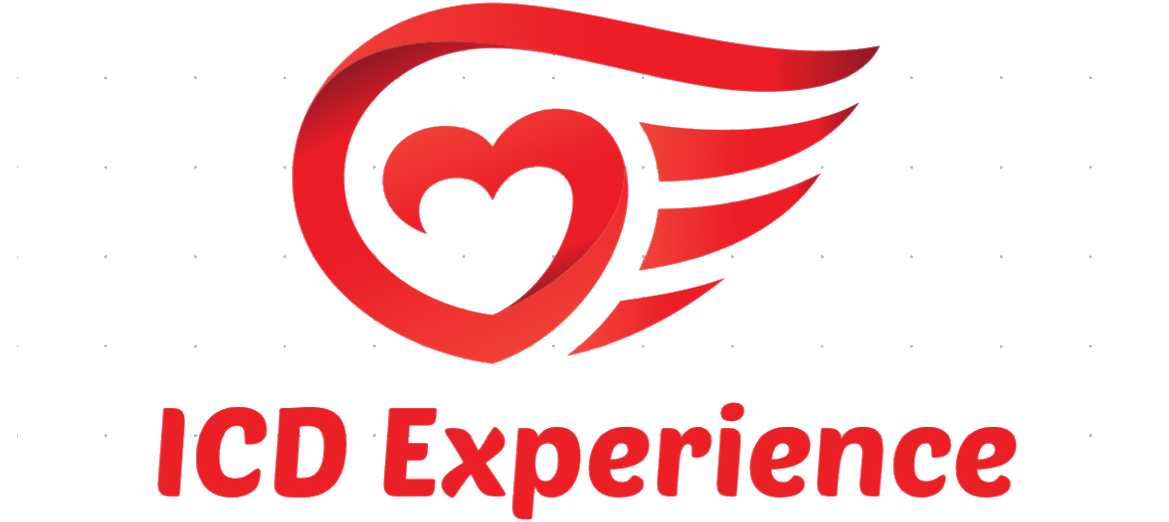Living with an Implantable Cardioverter Defibrillator (ICD) requires a comprehensive approach to health management, where nutrition plays a pivotal role. A heart-healthy diet is essential not only for supporting your overall well-being but also for optimizing the function of your ICD and reducing the risk of complications. This blog post will delve into the importance of nutrition when living with an ICD, providing expert advice on building a diet that supports heart health, managing your condition effectively, and enhancing your quality of life.
Understanding the Connection Between Diet and Heart Health
Your heart health is directly influenced by what you eat, making diet a critical factor for those living with an ICD. A heart-healthy diet helps manage risk factors like high blood pressure, cholesterol, and weight, all of which are crucial for maintaining the proper functioning of your heart and ICD. When you eat foods that support heart health, you help reduce the strain on your heart, lower the risk of arrhythmias, and potentially extend the life of your ICD.
A diet rich in fruits, vegetables, whole grains, lean proteins, and healthy fats is the foundation of heart-healthy eating. These foods provide essential nutrients, antioxidants, and fiber that help protect the heart, improve circulation, and support overall cardiovascular health. On the other hand, diets high in saturated fats, trans fats, sodium, and added sugars can contribute to heart disease, weight gain, and complications related to ICD management.
Read to understand: Insurance and Costs Related to ICDs
Building a Heart-Healthy Diet
Creating a heart-healthy diet that suits your lifestyle and preferences involves choosing foods that promote cardiovascular health while avoiding those that can harm your heart. Here’s how to get started:
Focus on Whole Foods
Whole foods, such as fruits, vegetables, whole grains, nuts, seeds, and lean proteins, should make up the majority of your diet. These foods are minimally processed and packed with essential nutrients that support heart health. For example, leafy greens like spinach and kale are rich in vitamins, minerals, and antioxidants that can help lower blood pressure and reduce the risk of heart disease. Similarly, whole grains such as oats, quinoa, and brown rice provide fiber that helps regulate cholesterol levels.
Limit Unhealthy Fats
Not all fats are created equal. While healthy fats like those found in olive oil, avocados, and fatty fish are beneficial for your heart, unhealthy fats can have the opposite effect. Saturated fats and trans fats, commonly found in fried foods, baked goods, and processed snacks, can raise cholesterol levels and increase the risk of heart disease. To protect your heart, focus on incorporating more sources of unsaturated fats and omega-3 fatty acids into your diet, such as salmon, walnuts, and flaxseeds.
Watch Your Sodium Intake
Excess sodium can lead to high blood pressure, which is a significant risk factor for heart disease and can complicate ICD management. Many processed and packaged foods are high in sodium, so it’s important to read labels and choose low-sodium options whenever possible. Cooking at home gives you better control over your sodium intake, allowing you to season your meals with herbs and spices instead of salt. The American Heart Association recommends limiting sodium intake to 1,500 milligrams per day for optimal heart health.
Nutritional Guidelines for ICD Patients
Living with an ICD means being mindful of your diet to ensure it supports your heart and overall health. Here are some expert recommendations for nutritional guidelines tailored to those with an ICD:
Prioritize Potassium-Rich Foods
Potassium is an essential mineral that helps regulate heart function and blood pressure. Including potassium-rich foods in your diet can help counteract the effects of sodium and reduce the risk of heart-related issues. Bananas, sweet potatoes, spinach, and beans are excellent sources of potassium. However, it’s important to discuss your potassium intake with your healthcare provider, as certain medications may affect your potassium levels.
Incorporate Omega-3 Fatty Acids
Omega-3 fatty acids are known for their heart-protective benefits, including reducing inflammation, lowering triglyceride levels, and preventing arrhythmias. Fatty fish like salmon, mackerel, and sardines are rich sources of omega-3s, making them an excellent addition to your heart-healthy diet. If you’re not a fan of fish, you can also get omega-3s from flaxseeds, chia seeds, and walnuts. Omega-3 supplements are another option, but it’s best to consult with your doctor before starting any new supplements.
Focus on Fiber
Fiber plays a crucial role in maintaining heart health by helping to lower cholesterol levels and improve digestion. Soluble fiber, in particular, can help reduce the absorption of cholesterol into your bloodstream. Foods high in soluble fiber include oats, beans, lentils, apples, and citrus fruits. Incorporating these foods into your daily diet can support your heart and help manage your weight, which is especially important for those with an ICD.
Don’t miss: ICD and Self-Identity: Rebuilding Confidence
Meal Planning and Preparation Tips
Planning and preparing your meals in advance can make it easier to stick to a heart-healthy diet. Here are some tips to help you get started:
Plan Balanced Meals
When planning your meals, aim to include a variety of nutrient-dense foods that support heart health. A balanced meal might include a serving of lean protein (such as grilled chicken or tofu), a generous portion of vegetables, a serving of whole grains, and a source of healthy fats. For breakfast, consider options like oatmeal topped with berries and nuts or a smoothie made with spinach, banana, and almond milk. These meals not only provide essential nutrients but also help keep you full and satisfied throughout the day.
Cook in Batches
Cooking in batches can save time and ensure you have healthy meals ready to go throughout the week. Prepare large portions of heart-healthy dishes like vegetable soups, quinoa salads, or roasted vegetables that can be easily reheated. Store these meals in individual containers so you can grab them quickly when you’re short on time. Batch cooking also helps reduce the temptation to order takeout or eat processed foods, both of which can be high in sodium and unhealthy fats.
Be Mindful of Portion Sizes
Portion control is key when it comes to maintaining a healthy weight and supporting heart health. Even healthy foods can contribute to weight gain if eaten in large quantities. Use smaller plates, measure out servings, and pay attention to hunger cues to avoid overeating. Eating slowly and mindfully can also help you recognize when you’re full and prevent you from consuming more than you need.
Navigating Dining Out and Social Situations
Maintaining a heart-healthy diet can be challenging when dining out or attending social events, but it’s not impossible. With a little planning and mindfulness, you can enjoy meals outside your home while still supporting your heart health.
Choose Heart-Healthy Menu Options
When dining out, look for menu options that align with your heart-healthy diet. Many restaurants now offer healthier choices, such as grilled fish, salads with olive oil dressing, and steamed vegetables. Avoid dishes that are fried, breaded, or loaded with creamy sauces, as these are often high in unhealthy fats and sodium. Don’t hesitate to ask the server about how dishes are prepared or request modifications to make your meal healthier.
Also read: Life Expectancy with an ICD
Practice Portion Control
Restaurant portions are often larger than what you would serve at home, so be mindful of portion sizes when dining out. Consider sharing a meal with a friend or asking for a to-go box when your food arrives so you can save half for later. This not only helps with portion control but also allows you to enjoy the meal without feeling overly full.
Plan Ahead for Social Events
Social events and gatherings can be tricky when trying to maintain a heart-healthy diet, but with a little planning, you can stay on track. If you know the event will include food that doesn’t align with your dietary needs, consider eating a small, healthy meal beforehand so you’re not as hungry when you arrive. You can also offer to bring a heart-healthy dish to share, ensuring there’s at least one option that fits your diet.
The Role of Hydration in Heart Health
Staying hydrated is a vital aspect of heart health, especially for those living with an ICD. Proper hydration helps your heart pump blood more efficiently and supports overall cardiovascular function. However, it’s important to strike the right balance, as both dehydration and overhydration can pose risks.
Drink Plenty of Water
Water is the best choice for staying hydrated and supporting heart health. Aim to drink at least eight glasses of water per day, or more if you’re physically active or live in a hot climate. Carrying a water bottle with you throughout the day can help you remember to drink regularly. If you’re not a fan of plain water, try adding a slice of lemon, lime, or cucumber for a refreshing twist.
Limit Sugary and Caffeinated Beverages
Sugary drinks, such as soda and fruit juices, can contribute to weight gain and increase the risk of heart disease. Similarly, excessive caffeine intake can lead to elevated heart rate and blood pressure, which can be problematic for those with an ICD. Instead, opt for herbal teas, infused water, or sparkling water with a splash of juice for a healthier alternative.
Incorporating Supplements and Vitamins
While a balanced diet should provide most of the nutrients your body needs, there are certain vitamins and supplements that can support heart health and complement your ICD management. However, it’s important to consult with your healthcare provider before adding any new supplements to your routine.
Omega-3 Fatty Acids
As mentioned earlier, omega-3 fatty acids are known for their heart-protective benefits. If you’re not getting enough omega-3s from your diet, consider taking a fish oil supplement. This can help reduce inflammation, lower triglycerides, and support overall heart health. Be sure to choose a high-quality supplement and follow the dosage recommendations provided by your healthcare provider.
Coenzyme Q10 (CoQ10)
CoQ10 is a powerful antioxidant that plays a role in energy production and heart health. Some studies suggest that CoQ10 supplementation may help improve heart function and reduce the risk of heart failure in certain individuals. If you’re interested in taking CoQ10, discuss it with your doctor to determine if it’s right for you and to establish the appropriate dosage.
Magnesium
Magnesium is an essential mineral that supports heart health by helping to regulate heart rhythm and blood pressure. Many people don’t get enough magnesium from their diet, which can lead to deficiencies and increase the risk of heart-related issues. Foods rich in magnesium include leafy greens, nuts, seeds, and whole grains. If you’re considering a magnesium supplement, consult with your healthcare provider to ensure it’s safe and appropriate for your needs.
Check out: Living with and Caring for an ICD: Essential Tips
Reading and Resources
- American Heart Association: Heart-Healthy Eating – This resource offers comprehensive information on heart-healthy eating, including tips, recipes, and guidelines for a balanced diet.
- Mayo Clinic: Nutrition and Healthy Eating – Mayo Clinic provides expert advice on nutrition and healthy eating, with a focus on managing chronic conditions like heart disease.
- Harvard Health: The Nutrition Source – Harvard Health offers evidence-based guidance on nutrition, including articles on heart-healthy diets and the benefits of various nutrients.
Conclusion: Embracing a Heart-Healthy Diet with an ICD
Maintaining a heart-healthy diet is a crucial aspect of managing life with an ICD. By focusing on whole foods, limiting unhealthy fats, and prioritizing nutrient-rich options, you can support your heart and improve your overall well-being. Whether you’re planning meals at home, dining out, or attending social events, making mindful choices will help you stay on track and enjoy a vibrant, healthy life.
Remember to stay hydrated, incorporate key supplements as needed, and consult with your healthcare provider to ensure your diet aligns with your health needs. With the right approach to nutrition, you can enhance your quality of life and optimize the function of your ICD, empowering you to live a full and active life.
For more in-depth insights, check out my book “Understanding ICD Implants: A Comprehensive Guide.”













3 Comments